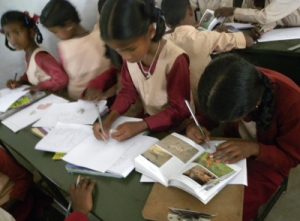Do or do not. There is no try – Yoda

Political ecology, to my knowledge, does not exist in India at least in the mainstream parties. It exists in France but the (supposedly) democratic decision-making process, personal ambitions and the theoretical hair-splitting differences have neutered the movement. To manage the environment better, politics doesn’t work and education doesn’t perform much on this front: we are destroying our world and us with it seemingly without any possibility of correction.
If large-scale social consensus is unachievable, maybe we should aim at the smallest possible entity – us, individuals. This proposal is anarchism. Usually depicted as violent, anarchism is actually supposed to rest on individual responsibility, not on violence. It is consequently maybe the highest form of political involvement. Anarchists are not the only ones to insist on personal responsibility. The Indian philosopher Krishnamurthi was saying that any individuals must become his/her own savior. This is very much in alignment with the concept of Self, except that Krishnamurthi, contrary to tradition, shunted the idea of guru. If you take things in hands, you save yourself and the world!
You may tell: “biodiversity is getting destroyed, I don’t know anything about it, but I would like to act personally.” My suggestion is to follow your preference, biodiversity offers plenty of choice. If you like birds, insects, plants, anything wild, then try to document something you like. Wherever you are, in a city, a garden, a park, there still may be some life. Keeping it is a challenge and most of the time, we don’t know anything about it. To become knowledgeable, you can start probing the internet. When you become familiar, you can purchase books on the topic, take picture with locations and whenever possible, identify. After a few weeks, you will meet people with the same passion, and who knows, maybe a desperate NGO will be able to use your documentation to make a point and save a few square meters of valuable ecosystem.
In 1997 E.R.C. Davidar wrote a book (Cheetal Walk, living in the wilderness, Oxford University Press) that synthetized his naturalist knowledge about the Sigur Region, north of the Nilgiris, India. It was not a scientific book but sufficiently documented to provide valuable ecological information. Today the book is used to conserve ecosystems in the Nilgiris. Consequently, individual passion about life works and helps conservation: we know it from experience.
Jean-Philippe Puyravaud
